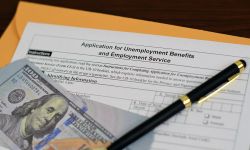Opinion | Coronavirus will deal long, hard hits to MIchigan's most vulnerable

The new coronavirus (COVID-19) will not discriminate as it rapidly infects people of all ages, races, genders and backgrounds across our state and our country. However, the long-term socioeconomic impact will have one clear target: Michigan’s most vulnerable.
In 2017, the Michigan Association of United Ways found that 43 percent of Michigan households were considered ALICE households, or those who are Asset Limited, Income Constrained, Employed. This group includes individuals who may have a job but are still unable to make ends meet in order to pay for housing, child care, food, transportation, health care and other basic necessities.
Take away those jobs, and many in this population will fall into financial ruin.
As restaurants, bars, stores and theaters close their doors or significantly pare operations to slow the spread of COVID-19, their employees—many of whom fall into the ALICE threshold—will be hit the hardest.
Make no mistake, the ramifications of staying open would be far worse. But it’s essential we begin to prepare now for the short- and long-term economic impact of COVID-19 on Michigan’s most vulnerable.
The United Way is taking immediate action to serve the ALICE population through Michigan 2-1-1—a free, confidential service to help those in need of assistance connect to thousands of programs and services. With seven call centers around the state, 2-1-1 employees are available around the clock to residents in more than 180 languages. 2-1-1 provides immediate assistance with housing, utilities, health care and other services.
We are in direct contact with local public health departments to ensure our community response is up-to-date. We’re also using 2-1-1 data in real time to pinpoint needs where they exist and work with state agencies and nonprofits to quickly address them. We are convening groups of stakeholders to discuss immediate and long-term solutions, including identifying gaps in funding and creating a viable path forward for our most vulnerable residents.
Perhaps most importantly, United Ways and countless local partners have established COVID-19 relief funds to help ensure families in need can access health care, financial resources and other support. The funds will allow us to rapidly deploy resources to community-based organizations offering emergency relief to families and individuals in need.
Caring for our state’s ALICE population for the long term will require collective action. We must unite our efforts to advocate for Michigan’s most vulnerable, and to build a sustainable safety net to help families weather the storm.
United Way has responded to our community’s most pressing needs for more than 100 years, and we will continue to do so amid COVID-19 and beyond. A s we all learn to adapt and navigate the new normal, we must work together and support our neighbors now more than ever.
See what new members are saying about why they donated to Bridge Michigan:
- “In order for this information to be accurate and unbiased it must be underwritten by its readers, not by special interests.” - Larry S.
- “Not many other media sources report on the topics Bridge does.” - Susan B.
- “Your journalism is outstanding and rare these days.” - Mark S.
If you want to ensure the future of nonpartisan, nonprofit Michigan journalism, please become a member today. You, too, will be asked why you donated and maybe we'll feature your quote next time!




